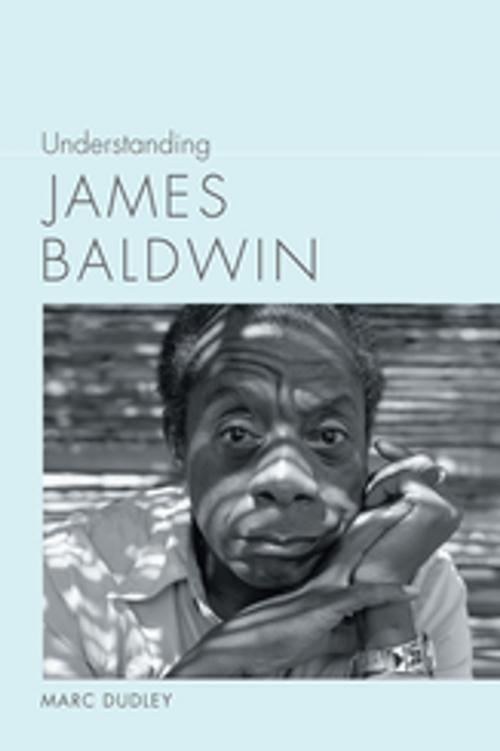| Author: | Marc Dudley, Linda Wagner-Martin | ISBN: | 9781611179651 |
| Publisher: | University of South Carolina Press | Publication: | April 17, 2019 |
| Imprint: | University of South Carolina Press | Language: | English |
| Author: | Marc Dudley, Linda Wagner-Martin |
| ISBN: | 9781611179651 |
| Publisher: | University of South Carolina Press |
| Publication: | April 17, 2019 |
| Imprint: | University of South Carolina Press |
| Language: | English |
The Harlem-born son of a storefront preacher, James Baldwin died almost thirty years ago, but his spirit lives on in the eloquent and still-relevant musings of his novels, short stories, essays, and poems. What concerned him most—as a black man, as a gay man, as an American—were notions of isolation and disconnection at both the individual and communal level and a conviction that only in the transformative power of love could humanity find any hope of healing its spiritual and social wounds. In Understanding James Baldwin, Marc K. Dudley shows that a proper grasp of Baldwin’s work begins with a grasp of the times in which he wrote. During a career spanning the civil rights movement and beyond, Baldwin stood at the heart of intellectual and political debate, writing about race, sexual identity, and gendered politics, while traveling the world to promote dialogue on those issues. In surveying the writer’s life, Dudley traces the shift in Baldwin’s aspirations from occupying the pulpit like his stepfather to becoming a writer amid the turmoil of sexual self-discovery and the harsh realities of American racism and homophobia. The book’s analyses of key works in the Baldwin canon—among them, Go Tell It on the Mountain, Giovanni’s Room, “Sonny’s Blues,” Another Country, The Fire Next Time, and The Devil Finds Work—demonstrate the consistency, contrary to some critics’ claims, of Baldwin’s vision and thematic concerns. As police violence against people of color, a resurgence in white supremacist rhetoric, and pushback against LGBTQ rights fill today’s headlines, James Baldwin’s powerful and often-angry words find a new resonance. From early on, Baldwin decried the damning potential of alienation and the persistent bigotry that feeds it. Yet, even as it sometimes wavered, his hope for both the individual and the nation remained intact. In the present historical moment, James Baldwin matters more than ever.
The Harlem-born son of a storefront preacher, James Baldwin died almost thirty years ago, but his spirit lives on in the eloquent and still-relevant musings of his novels, short stories, essays, and poems. What concerned him most—as a black man, as a gay man, as an American—were notions of isolation and disconnection at both the individual and communal level and a conviction that only in the transformative power of love could humanity find any hope of healing its spiritual and social wounds. In Understanding James Baldwin, Marc K. Dudley shows that a proper grasp of Baldwin’s work begins with a grasp of the times in which he wrote. During a career spanning the civil rights movement and beyond, Baldwin stood at the heart of intellectual and political debate, writing about race, sexual identity, and gendered politics, while traveling the world to promote dialogue on those issues. In surveying the writer’s life, Dudley traces the shift in Baldwin’s aspirations from occupying the pulpit like his stepfather to becoming a writer amid the turmoil of sexual self-discovery and the harsh realities of American racism and homophobia. The book’s analyses of key works in the Baldwin canon—among them, Go Tell It on the Mountain, Giovanni’s Room, “Sonny’s Blues,” Another Country, The Fire Next Time, and The Devil Finds Work—demonstrate the consistency, contrary to some critics’ claims, of Baldwin’s vision and thematic concerns. As police violence against people of color, a resurgence in white supremacist rhetoric, and pushback against LGBTQ rights fill today’s headlines, James Baldwin’s powerful and often-angry words find a new resonance. From early on, Baldwin decried the damning potential of alienation and the persistent bigotry that feeds it. Yet, even as it sometimes wavered, his hope for both the individual and the nation remained intact. In the present historical moment, James Baldwin matters more than ever.















